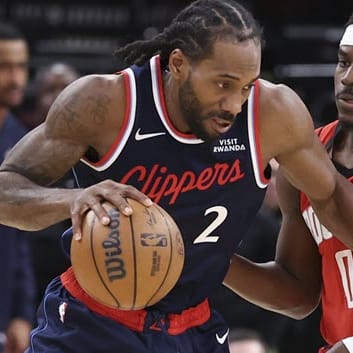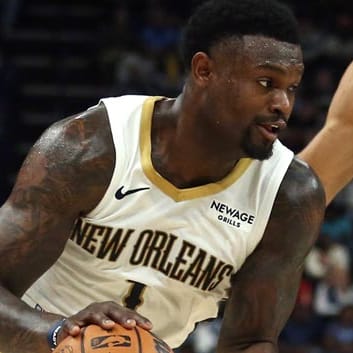The start of the NBA season is right around the corner. The time to draft fantasy basketball teams is now. Sleeper is throwing a bit of a wrinkle into traditional fantasy with their new "Lock-In" fantasy basketball game mode. Let's dig into this new and exciting format and discuss some potential strategies for it.
How it Works
Like traditional leagues, fantasy managers will start out by drafting their squad. However, in-season scoring is very different under the Lock-In format. Each player on your squad will only have one game per week that counts toward your matchup score. That helps in terms of not needing to worry so much about how many games are on the schedule each week for individual players on your team. In traditional formats, players who play four or five games in a week have a significant advantage over those who play just two or three times.
The cool part about the Lock-In format is that fantasy managers get to choose which game for each of their players they want to count towards their weekly score. Did your superstar lay an egg in a game or maybe get hurt and have to leave a game early? No problem, you just don't count that as their one game score for the week.
The wrinkle about this format is the timing for which a fantasy manager selects a player's game to count towards their weekly score. There's no waiting until the end of the week and then just picking the best score. To select a game to count towards their final score, a fantasy manager must "lock-in" that game before the player participates in their next game. Once that next game starts, the previous game is no longer available to be selected.
It's also important to note that a player must be in a fantasy manager's starting lineup that day in order to be eligible to have their game locked in. You can't select a game from a player who was on your bench.
Once a player's game is selected to count towards the fantasy manager's weekly matchup, it can't be undone. So, if the player has a better game later in the week, it's not available to be selected if one game was already locked in earlier in the week. Also, when locking in a game, that player is also locked into that position within your lineup. There is no ability to move a player to a different position in order to slide the game of a different player into the starting lineup. So, if you lock in a game for LeBron James at forward, you can't move him to a utility spot later in the week to utilize the score of another player at forward.
Finally, if a fantasy manager does not lock in a game for a player in their starting lineup by the end of the week, Sleeper will select the fantasy points scored in that player's final game of the week. If that score is a zero, that is still the score that will be counted.
For a video tutorial on this new game mode, click here.
Strategy
This format helps players who are more boom or bust in terms of their stat lines, rather than steady contributors who don't carry a ton of upside. For example, Knicks' guard Immanuel Quickley might carry more value in this format. He is their key scorer off the bench, which can lead to some offensive explosions. There is also the potential for juicy stat lines if he moves into the starting lineup for an injured player. He scored at least 20 points in 20 of 81 games last season. However, he also scored fewer than 10 points in a game 22 times.
A player like Harrison Barnes might not be worth pursuing. He scored 15 or fewer points in 44 of 82 games, which didn't lead to many juicy stat lines when also factoring in his average of 4.5 rebounds per game for the season.
The main debate for this format is when to select a player's one game to count towards your weekly score. Passing on a good game score early in the week could backfire if they struggle in their games at the end of it. However, locking in a modest game score early might be disappointing if the player has an outburst in a different game later on.
Given all of the injuries and rest days that occur in the NBA, passing on a good game from a player early in the week might come back to bite a fantasy manager. However, holding back a player or two to be able to pick a game from them later in the week could also be important. If they start off the week with two average games, the potential for a better performance in their final game of the week could help, especially for fantasy managers who are playing catchup in their weekly league matchup.



































